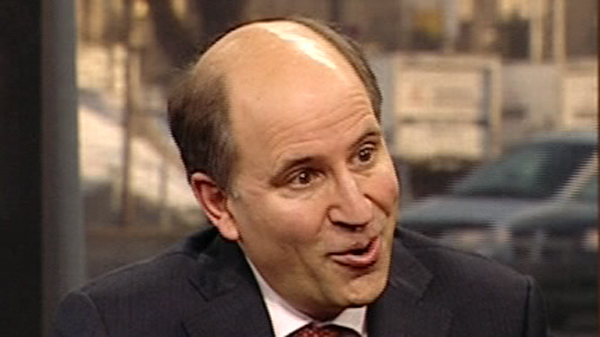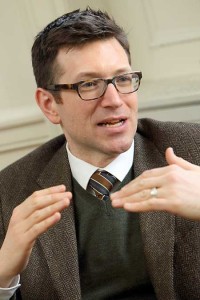Richard Janda on CTV Montreal
Professor Richard Janda was CTV’s newsmaker on February 29, appearing on the news broadcast to share his thoughts about the Quebec government’s Plan Nord. Watch the interview.

Robert Leckey in the McGill Reporter
The McGill Reporter recently sat down with Robert Leckey, a William Dawson Scholar and associate professor at the Faculty of Law, to discuss same-sex marriage, polygamy and family law in Canada.
Love, marriage and the law
By Cynthia Lee

Since same-sex marriage was first legalized in Canada in 2003, more than one-third of the approximately 15,000 same-sex marriages that have taken place here have involved couples from other countries.
But early this year, a surprising turn in federal policy emerged in a document filed in a case launched by a lesbian couple seeking a divorce in which the federal government maintained that the marriage, which had been performed here in Canada, was invalid.
The Reporter sat down with Robert Leckey, William Dawson Scholar in the Faculty of Law, to discuss same-sex marriage, polygamy and family law in Canada.
What does marriage have to do with love?
I am teaching a new course about family property – it is all about the consequences that follow family relations. It all depends on our sense of what normal is. Laws presume some sense of how married people normally act towards one another, and then there is always some exception to the rule. In law, we are often uncomfortable talking about love or morality; we prefer to talk about rights, but it is deeply moral – the determination of what people are required to share and how we expect them to act.
Are we free to marry whomever we chose?
Yes and no. We had a reference judgment this fall that said you can’t be married to multiple people. So on polygamy, the judge based himself on the idea of harm. Loving two people at once and going through two ceremonies is harmful, to society, each other and children. The judge thought it was harmful, basing his decision in part on sister wives’ competition for love and attention. This judgment tells us polygamy is still a crime – you cannot purport to be married to two people or go through a ceremony with more than one person.
You can live with more than one person, but it is the idea of holding it out as a marriage that runs up against the criminal law. Lots of people would say that is a weird place to draw the line. The judge’s response is that it’s only when you went through a ceremony that you begin to threaten the institution of monogamous marriage. Our criminal law validly makes it a crime to be in a polygamous relationship.
Gjergji Hasa, 3L, in Canadian Lawyer 4 Students
Gjergji Hasa, who was previously featured in our student video series, spoke to Canadian Lawyer 4 Students about his experiences as an international student.
[Hasa] says he always had his sights set on McGill because “it has a lot of international students as well, it has an international character, it is well known internationally, and I wanted to work in the international field.” McGill has a large global community; nearly 19 per cent of its student body is international students. In October 2009, law students started a popular blog called LegalFrontiers, which features articles written by students and professors about issues in international law.
…Hasa also plans on being a liaison between Canada and his home country. He seeks to remove the political corruption in Albania and improve its economy. “In Albania, I think that people have had enough. They want things to change but things cannot change from the bottom up only or from the top down only,” he opines. “The will of the politicians and the culture that is created is far from where it should be. So being an example and simply delivering what people want would be the first change that needs to be made.”
Read more.
